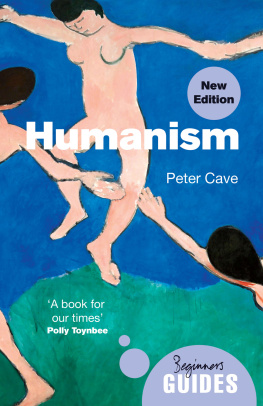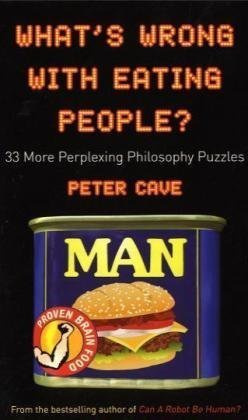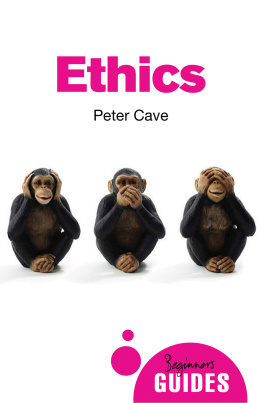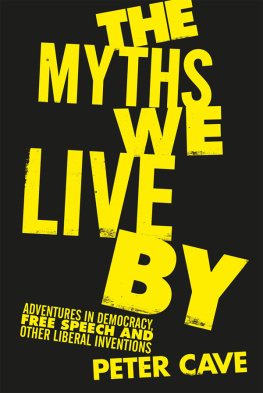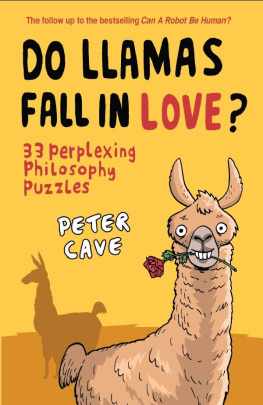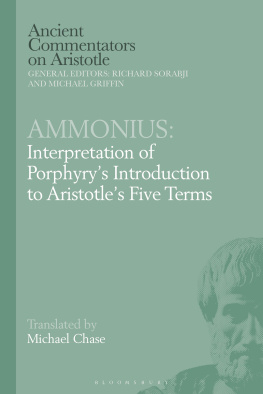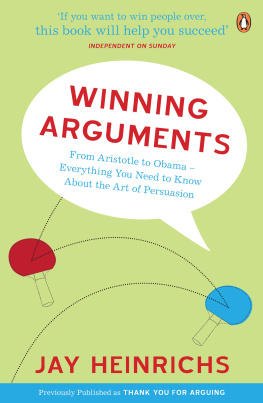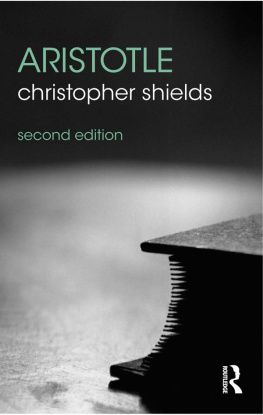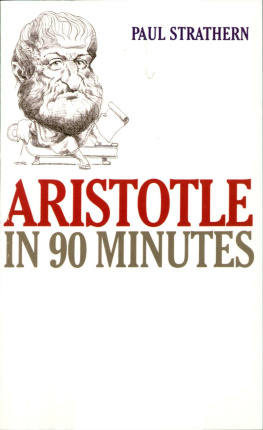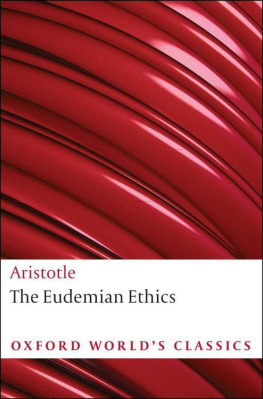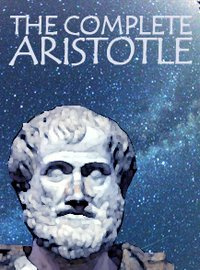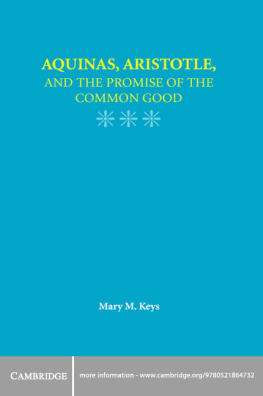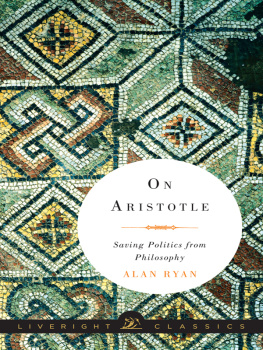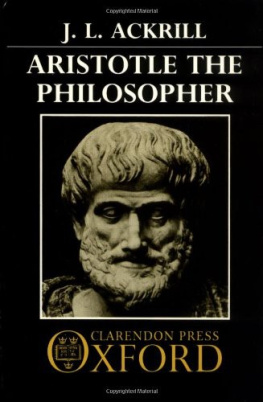How to Outwit Aristotle
and 34 other really interesting uses of philosophy
Peter Cave


New York London
2012 by Peter Cave
All rights reserved. No part of this book may be reproduced in any form or by any electronic or mechanical means, including information storage and retrieval systems, without permission in writing from the publisher, except by reviewers, who may quote brief passages in a review. Scanning, uploading, and electronic distribution of this book or the facilitation of the same without the permission of the publisher is prohibited.
Please purchase only authorized electronic editions, and do not participate in or encourage electronic piracy of copyrighted materials. Your support of the authors rights is appreciated.
Any member of educational institutions wishing to photocopy part or all of the work for classroom use or anthology should send inquiries to Permissions c/o Quercus Publishing Inc., 31 West 57th Street, 6th Floor, New York, NY 10019, or to .
ISBN 978-1-62365-248-7
Distributed in the United States and Canada by Random House Publisher Services
c/o Random House, 1745 Broadway
New York, NY 10019
www.quercus.com
CONTENTS
INTRODUCTION
A woman was advising her anguished friend, Be philosophicalthen you wont need to think about it.
Well, being philosophical is sometimes taken to mean that you should adopt a resigned attitude to the world. The study that is Western philosophy, starting with the ancient Greeks and continuing today in universities, bars and cafseven bedroomsis, though, far from quiet and unthinking. Philosophers thinkbut not just that, for they think about thinking and they think about how we think about the world, about how we conceive of our selves, about how we possess a sense of right and wrong, about how we find meaning in life (if we do).
What philosophers think about is, largely, what we already know or think we know. But in thinking they bring out tensions in our thinking, in our understanding of the world. They sense those bumps of intellectual dust lurking under, or within, our conceptual carpetand they try to find ways of smoothing them out. They may be successful in their smoothing, only to find, though, that they have moved the bumps, the dusty conceptual dubieties, to elsewhere under the carpet. Here is a simple example.
We often explain what people do in terms of the end in view. Joanna jogs for her health: health is the aim. Yet how can health be the explanation of Joannas jogging? After all, the anticipated health is in the future; how can something in the future cause something to happen, the jogging, right now? Worse is to come. The health may never be realizedshe may collapse with exhaustionso how can something non-existent (for she failed in her health quest) explain Joannas current jogging? Well, we can smooth over that intellectual bump. We may insist that, really, it is Joannas desire for good healthand it is that desire that precedes and causes the jogging. So, we may breathe easily, contented now, in that there is no problem with explanations in terms of ends after all. But then a philosophical whisper is heard, Ah, but Joanna desires good health; yet how can she desire something that may not exist? Now we are finding a bump in the belief area of our intellectual carpet.
When reflecting philosophically on the topics in this book, we should keep in mind certain elements, certain distinctions, that often arise and can help to clarify. Let me hasten to add, though, that even these distinctions give rise to controversy. Still, let us note some important ones straightaway.
One is the distinction between what must be so and what merely happens to be so. Obama happens to be President of the USA in 2012, but he might not have been. It is a contingent fact that he is President. Obama might have gone in for pig farming, instead of politics. (We assume there is a distinction.) In contrast, it is surely a necessary truthand not a contingent truththat the number seven is an odd number. Obviously the word seven might have meant six, but we are talking of the number seven, not of the word seven.
Another related distinction is that between a posteriori knowledge and a priori knowledge. The distinction is relevant when wondering quite how we came to know or believe something. Much of our knowledge and many beliefs derive from the world around us, the empirical world of tables and chairs, fields and fish, newspapers and forest walks. We go out and investigate or, at least, laze in front of the television and soak up. Such knowledgeknowledge that can only be derived through our experiences of the empirical worldis a posteriori knowledge. There is, though, another sort of knowledgea priori knowledgethat we can arrive at independently of experience. Assuming that we have the concepts of multiplication and number, we can, in principle, work out that 9 7 = 63. In contrast, even if we understand what it is to be a president of the USA and what it is to be the elected democratic candidate, we cannot work out by reason alone that in 2012 they are one and the same individual. We need experience of election results to know that.
An important concern of philosophers is the avoidance of contradictions. A contradiction cannot possibly be true: it is a necessary falsehood. It cannot be true that this sentence is in English and not in English. The sentence is either in Englishor not. That either/or statement just made is a necessary truth, one that must be true. To be consistent, we must avoid contradictions. After all, if we hold contradictory beliefs, one of our beliefs is bound to be false.
A mistaken quip is that there are no right or wrong answers in philosophy. Philosophers are able to point to mistakes in argumentsinconsistencies, impossible pictures of how things are or could be. But, having said that, it is true that philosophers still offer different pictures of how we are to understand the worldof free will, the self, the groundings of morality, and so forth. Philosophy is a living subject. Paradoxically it can breathe life as much through re-considering the thoughts of great philosophers in the past, such as the ancient Greeks Socrates, Plato and Aristotle, as through thinking hard about new and refreshing ways of approaching philosophical problemsindeed, new and refreshing ways to live.
CHAPTER 1
How to know that you exist
I just think I do
Your existence is known to youwell, so it seems. You are reading thisor at least you think you areand maybe sipping a drink and yawning, with eyes closing. Therefore, you exist. The basic idea is the well-known maxim I think, therefore I am, most famously associated with the 17th-century French philosopher Ren Descartes. Descartes tried to doubt everything. In thinking about these things, doubting about this and thateven drunkenly seeing pink elephantshe must surely be existing. Well, so he reasoned.
I think, therefore I am
These wordsI think, therefore I am, or cogito ergo sum in Latinare probably the most well-known words of any philosopher. Mind you, that is not altogether accurate, for numerous philosophers have doubtless often said Im so tired or I need another drinkand such words are more familiar to most people.
The basic idea of the cogitocogito is the shorthand used for I think, therefore I amis to prove that you exist from the fact that you are thinking. It needs to be undertaken in the first person, using I. I know I exist because I know that I am thinking; and that I am thinking is taken to be self-evident, obviously truewell, it is when I am thinking. Even if this works and even if I am thereby certain that I existand Descartes is right in being certain that he exists; and you are right in being certain that you existit still leaves open the question of what is this I that is thinking and is therefore existing. Some discussion of the I, of the self, occurs in later chapters. We have enough problems here in sorting out what is right and wrong about the


